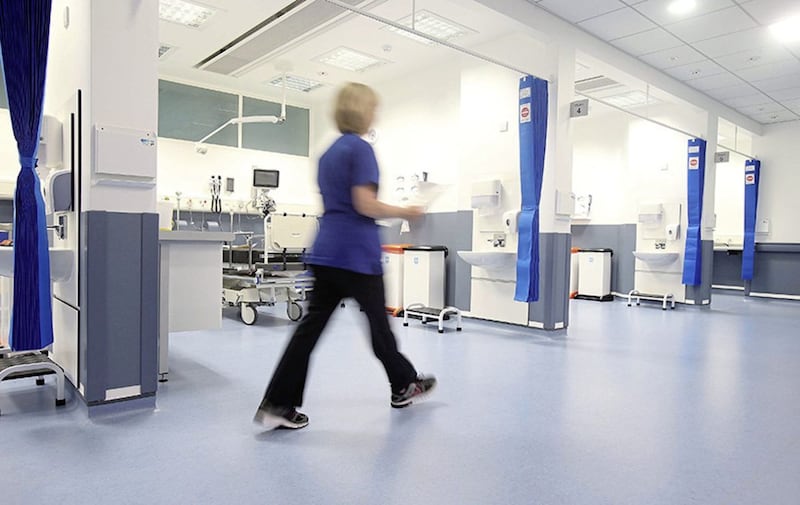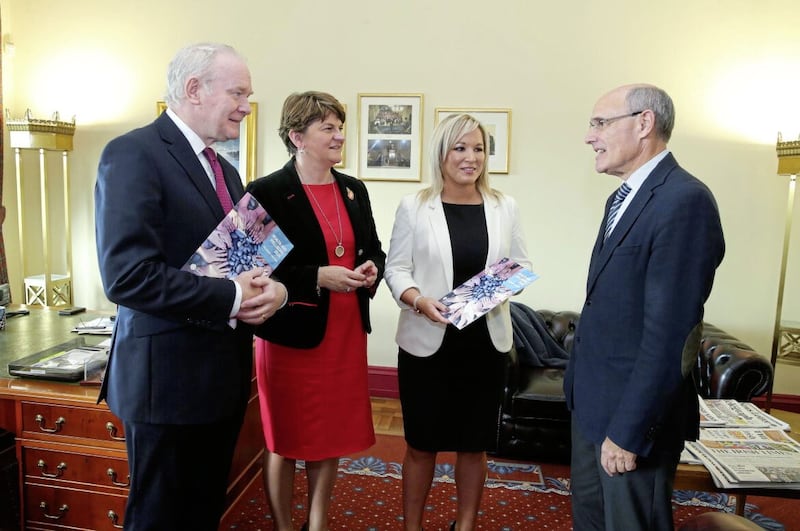MY wife has broken a rib falling over at the Dundonald ice bowl – such a 1980s injury, like burning your hand on a Breville sandwich toaster.
She was seen quickly at the Mater minor injuries unit, and ice bowl victims should soon have an even better service on their doorstep when the Ulster’s minor injuries unit is upgraded to an urgent care centre.
Hospital treatment was not our problem; the problem was obtaining painkillers beyond the Mater’s five-day supply. Standard procedure is for a GP to write a prescription based on an advice notice from the hospital. Some or most of this might happen automatically, with the medicine only requiring collection.
But none of it will happen at my wife’s GP practice as it has effectively collapsed. A recorded telephone message on Monday morning announced only emergencies would be seen, with no explanation how – and emergencies should go to A&E.
Read more:
- Newton Emerson: Is health reform actually a vote winner?
- Deirdre Heenan: Long hospital waiting lists are symptom of a system in chaos
- Deirdre Heenan: Can our health service be transformed, or is it doomed to change only through unplanned collapse?
Fortunately, we found a pharmacist who would prescribe based on my wife’s paper copy of the advice notice. We then took a copy of this prescription to the GP practice and asked a receptionist to ask a doctor to re-issue it.
However, not every pharmacist is able and willing to do this. Not everyone has a job that allows taking a half-day off to find a pharmacist, or a partner able to help, or a car – almost half the households in Belfast have no access to private transport.
As my wife and I drove carefully around (speed bumps and broken ribs do not mix) we realised this is our only problem with the health service, even in its present calamitous state, yet it is still causing us to lose faith in the whole system and think increasingly desperately of private alternatives.

In April I had a retinal detachment, received world-class surgery at the Royal less than 24 hours later, then spent a week in agony and had my recovery compromised because I could not get hold of a bottle of eye-drops.
My youngest son sometimes needs an inhaler but not often enough to maintain a repeat prescription. We spend several weeks every year trying to get medication that is commonly used for his condition.
Read more:
Not all of this is the fault of GPs. My eye-drop disaster was due to a catch-22 in hospital aftercare. But all of it is far removed from the funding and capacity constraints that tend to be blamed for the collapse of the NHS.
The official title of the 2016 Bengoa Report on health reform in Northern Ireland is “Systems Not Structures”, a plea from its lead author, Prof Rafael Bengoa, to focus on how things are done rather than where they are done. But public and political debate remains fixated on local objections to centralising hospital services. There is little interest in the elaborate processes obstructing patients and clinicians alike.

Management consultants should be crawling all over the NHS identifying needless duplication and bureaucracy – research in Canada has shown hospital capacity can be increased by 70 per cent through simple changes to working practices. The digital records system launched this month by the South Eastern Trust shows important progress is being made but speeding up paperwork is no substitute for sweeping it away.
In my wife’s case, why could the minor injuries unit not have prescribed painkillers for three weeks, the minimum time it takes any cracked rib to heal? Should the medicine in question, lidocaine patches, require a prescription in the first place? It is available over the counter in many countries and the risks from over-use are trivial.
The secretary of state wants a debate on re-introducing prescription charges, although this would barely save money due to exemptions and overheads. Giving people the option to buy more medicine over the counter could save more money and significantly more time, with no political contention.
The medical profession is conservative about treatment, with good reason, but gatekeeping agendas, inertia and vested interests must be confronted.








